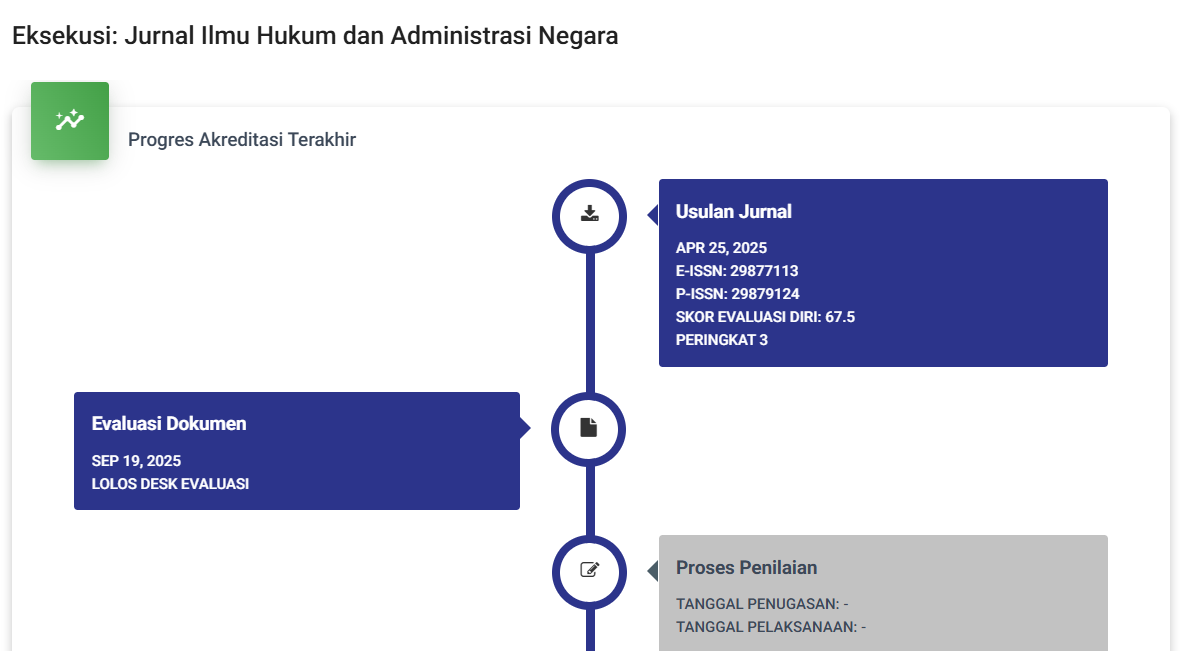The Implementation of Dishonorable Discharge for Indonesian National Armed Forces (TNI) Soldiers as a Means of Law Enforcement
DOI:
https://doi.org/10.55606/eksekusi.v2i1.1079Keywords:
Sanctions Implementation, Dishonorable Discharge, Criminal Acts by TNI AD PersonnelAbstract
To uphold legal principles within the military framework, it is imperative to establish legislative measures that serve as regulatory frameworks for soldiers. These measures are designed to govern their conduct both in the execution of official duties and in the regulation of their involvement within the broader societal context. This research aims to scrutinize the procedural intricacies involved in implementing dishonorable discharge for Indonesian National Armed Forces (TNI) soldiers who engage in criminal activities as a means of upholding the rule of law. Furthermore, it seeks to identify and address the challenges encountered in the process. This study applies a normative juridical approach, specifically descriptive-analytical research. Data comprises both secondary sources (i.e., literature works) and primary sources (i.e., interviews). The presentation of data is structured in a descriptive format, employing a qualitative analytical method. Research findings reveal that the process of implementing dishonorable discharge for TNI personnel involved in criminal activities encompasses both administrative and military disciplinary measures. Challenges encountered in the sanction application include (a) instances of unit commanders’ tardiness in administering administrative penalties and (b) efforts to address these impediments by ensuring meticulous law enforcement within each unit, coupled with conducting awareness campaigns across the entire units in TNI. It is underscored that criminal acts committed by TNI personnel are regarded as breaches of military discipline, carrying the threat of military and disciplinary penalties, alongside administrative sanctions culminating in dismissal. The application of administrative sanctions is anticipated to mitigate violations and instill a deterrent effect among TNI personnel. Legal ramifications persist for the individuals involved until the completion of their service. A proposed solution requires the submission of a comprehensive personality development progress report by respective unit commanders, confirming the completion of all legal processes, thereby facilitating the individual’s seamless career progression.
References
A.S.S. Tambunan, Hukum Militer di Indonesia, Jakarta : Pusat Studi Hukum Militer, Sekolah Tinggi Ilmu Hukum Militer : 2005
Amiroedin Syarif, Hukum Disiplin Militer, Jakarta : Rineka Cipta, 1982
…………………, Disiplin Militer dan pembinaannya, Jakarta : Ghalia Indonesia, 1982 Dr. Leden Marpaung, Hukum Pidana, Jakarta : 2005
E. Y. Kanter dan S.R. Sianturi, Hukum Pidana Militer di Indonesia, Alumni Ahaem-Petehaem, Jakarta : 1985
Muhammad Ainul Syamsu, S.H., M.H., Penjatuhan Pidana, Jakarta : 2016 Salam Moch. Faisal, Peradilan Militer Indonesia, Bandung : CV Mandar Maju, 1996
Wahyu MS, Petunjuk Praktis Membuat Skripsi, Surabaya : Usaha Nasional Undang-Undang Republik Indonesia Nomor 31 Tahun 1997, Tentang Peradilan Militer, Jakarta : Sinar Grafika, 1999
Undang-Undang Nomor 39 Tahun 1947, Tentang Kitab Undang-Undang Hukum Pidana Militer
Undang-Undang Republik Indonesia Nomor 34 Tahun 2004, Tentang Tentara Nasional Indonesia,
Badan Pembinaan Hukum TNI Badan Pembinaan Hukum TNI, Keputusan Panglima TNI Nomor : Kep/23/VIII/2005 tanggal 10 Agustus 2005, Tentang Atasan Yang Berhak Menghukum Dalam Lingkungan Tentara Nasional Indonesia, Jakarta : 2006
Markas Besar TNI AD, Peraturan Kepala Staf Angkatan Darat Nomor : Perkasad /14/VII/2007 tanggal 25 Juli 2007, Tentang Atasan Yang Berhak Menghukum Di Lingkungan Tentang Tentara Nasional Indonesia Angkatan Darat
Markas Besar TNI AD, Peraturan Kepala Staf Angkatan Darat Nomor : Perkasad/1/II/2009 tanggal 5 Februari 2009, Tentang Sanksi Administratif bagi Prajurit TNI AD yang melakukan pelanggaran
Markas Besar TNI AD, Petunjuk Pelaksanaan Pemberhentian Sementara dari Jabatan (Schorsing)
Markas Besar TNI AD, Buku Pedoman Tentang Sanksi Administratif Bagi Prajurit TNI AD Yang Melakukan Pelanggaran Markas Besar TNI AD, Buku Petunjuk Teknik Tentang Pemberhentian Dengan Tidak Hormat





